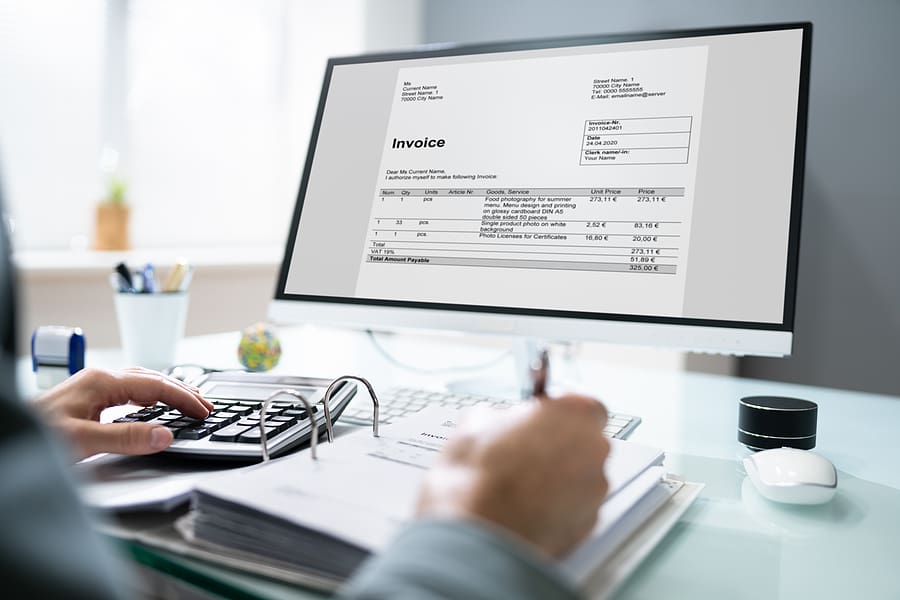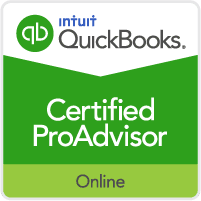Efficient Invoicing and Billing Practices For Small Businesses
Effective cash flow management is essential for sustainability and growth in the fast-paced world of small business ownership. Among the many moving parts of financial management, invoicing, and billing practices play a pivotal role. These processes are not just about sending out bills and collecting payments; they are about establishing clear communication, building trust with clients, and ensuring a steady influx of revenue. This comprehensive guide will explore the importance of efficient invoicing and billing practices for small businesses and discuss strategies to streamline these processes for improved cash flow management.
Importance of Efficient Invoicing and Billing Practices for Small Businesses
Efficient invoicing and billing practices are the foundation of financial stability for small businesses. Timely and accurate invoicing ensures a steady cash flow, enabling companies to meet their financial obligations, invest in growth opportunities, and navigate economic uncertainties. Moreover, smooth billing processes contribute to positive client relationships, fostering trust and loyalty. Clients appreciate professionalism and clarity in invoicing, which can lead to repeat business and referrals. Therefore, implementing efficient invoicing and billing practices is not just about financial management; it’s about nurturing valuable client relationships and positioning your business for long-term success.
Impact on Cash Flow and Client Relationships
The impact of efficient invoicing and billing practices on cash flow cannot be overstated. Timely invoicing ensures that payments are received promptly, minimizing cash flow gaps and providing the necessary liquidity to cover expenses and investments. Conversely, delayed or inaccurate invoicing can lead to payment delays, cash flow disruptions, and potential strain on vendor relationships. By prioritizing efficient invoicing and billing practices, small businesses can maintain a healthy cash flow, seize growth opportunities, and quickly weather financial challenges.
Understanding the Basics
At the heart of efficient invoicing and billing practices lie accuracy and timeliness. Invoices should be error-free, clearly detailing the products or services provided and corresponding charges and payment terms. Additionally, invoices should be sent out promptly upon completion of work or delivery of goods to avoid delays in payment processing. Common challenges small businesses face in invoicing and billing include manual invoicing processes, inconsistent billing practices, and lack of visibility into invoice status and payments. Overcoming these challenges requires a proactive approach and efficient invoicing solutions.
Key Components of Efficient Invoicing
Creating and managing invoices involves several critical components, including:
- Selecting the Right Invoicing Software/Tools: Choose invoicing software or tools that align with your business needs and budget. Look for features like customizable invoice templates, automated reminders for overdue payments, and integration with accounting software for seamless financial management.
- Creating Professional and Customized Invoices: Craft professional-looking invoices that reflect your brand identity and professionalism. Include essential details such as your business name, logo, contact information, client details, itemized services or products, rates, and payment terms. Customizing invoices enhances the client experience and reinforces your brand image.
- Clear Payment Terms and Methods: Clearly outline payment terms on invoices, including due dates, accepted payment methods, late fees or penalties for overdue payments, and discounts or incentives for early or on-time payments. Transparent payment terms minimize confusion and disputes, ensuring smooth payment processing.
- Automation of Recurring Invoices: Automate recurring invoices for retainer agreements, subscriptions, or ongoing services to save time and ensure consistency in billing. Set up automated reminders for clients to renew subscriptions or retainers, reducing the administrative burden and improving cash flow predictability.
- Tracking Invoice Status and Payments: Utilize invoicing software to track the status of invoices, monitor payment activity, and send automated reminders for overdue payments. Real-time visibility into invoice status and payments allows you to proactively manage outstanding invoices and follow up with clients as needed.
Strategies for Streamlining Billing Processes
To streamline billing processes and improve efficiency, consider implementing the following strategies:
- Standardized Billing Schedule: Establish a standardized billing schedule, whether monthly, bi-weekly, or upon project completion. Consistency in billing helps clients anticipate and plan for payments, reducing payment delays and cash flow uncertainties.
- Offering Multiple Payment Options: Provide clients with flexibility by offering multiple payment options, including credit/debit cards, bank transfers, PayPal, and electronic payment gateways. Accommodating diverse payment preferences enhances the client experience and expedites payment processing.
- Electronic Invoicing and Online Payment Gateways: Embrace electronic invoicing and online payment gateways to expedite the billing process and reduce administrative overhead. Electronic invoices can be delivered instantly and facilitate faster payments, improving cash flow efficiency.
- Integration with Accounting Software: Integrate your invoicing system with accounting software to streamline financial management processes. This integration ensures seamless transfer of invoice data, eliminates duplicate data entry, and provides real-time visibility into financial performance. Businesses can improve accuracy, efficiency, and decision-making by centralizing invoicing and accounting functions.
- Outsourcing Billing Tasks if Necessary: If managing billing tasks internally becomes overwhelming, consider outsourcing to a trusted bookkeeping service or virtual assistant. Outsourcing lets you focus on core business activities while ensuring timely and accurate billing. Outsourced professionals bring expertise and efficiency to invoicing processes, freeing up valuable time and resources for business growth initiatives.
Communicating with Clients
Effective communication is essential for maintaining positive client relationships and minimizing payment delays. When communicating with clients:
- Establish Clear Communication Channels: Set clear expectations for communication channels and response times. Provide clients with dedicated contact points for invoicing inquiries or concerns, ensuring prompt and personalized assistance.
- Provide Detailed Breakdowns of Services and Charges: Include detailed breakdowns of services rendered and associated charges on invoices to enhance transparency and avoid disputes over billing discrepancies. Providing clarity and openness builds trust and minimizes misunderstandings.
- Polite but Firm Follow-ups on Overdue Payments: Send polite but firm follow-up reminders for overdue payments, emphasizing the importance of timely payment and highlighting any late fees or penalties incurred. Prompt follow-ups demonstrate professionalism and commitment to financial accountability.
- Incentives for Early or On-Time Payments: Consider offering incentives such as discounts or rewards for clients who make early or on-time payments. Incentives encourage prompt payment behavior and strengthen client loyalty, contributing to a positive payment culture.
Conclusion
Efficient invoicing and billing practices are essential for small businesses looking to maintain healthy cash flow and build strong client relationships. By prioritizing accuracy, timeliness, and clear communication, companies can streamline invoicing processes, improve cash flow management, and enhance the client experience. Embracing technology, standardizing billing procedures, offering multiple payment options, and outsourcing billing tasks if necessary are effective strategies for optimizing invoicing efficiency. Efficient invoicing and billing practices ultimately contribute to small businesses’ financial stability, growth, and long-term success.
If you’re ready to optimize your invoicing processes and improve cash flow management, contact In Balance Bookkeeping Solutions today for expert guidance and support.





